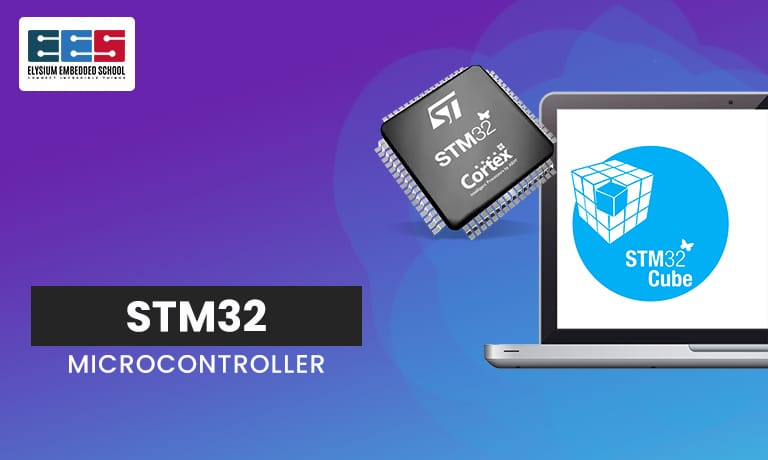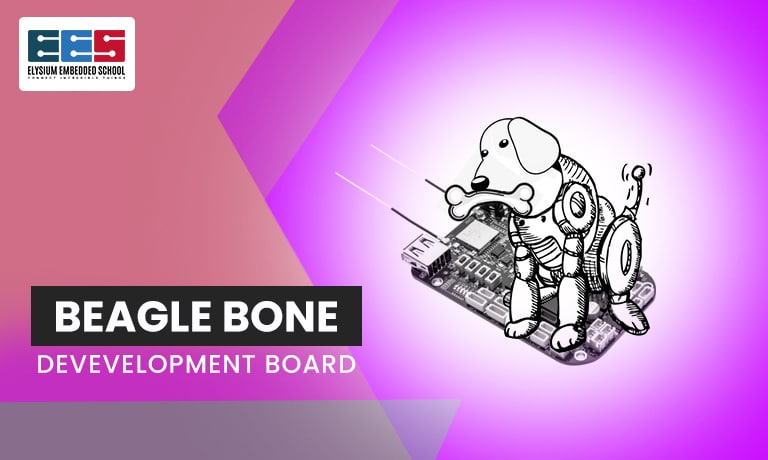Advanced Microcontroller
Advanced Microcontroller Embedded Training Course :
Advanced Microcontroller is an open-source and standard architecture. It has an on-chip interconnection structure for connection of functional blocks on specific designs. It has Advanced Bus Architecture, which facilitates multi-processor designs. Also, It enhances the development of the various ARM microcontroller
At the heart of Advanced Microcontroller Embedded Systems lies the Microcontroller unit (MCU), a miniature yet sophisticated computing device capable of executing complex tasks with precision and speed. With advancements in semiconductor technology, MCUs have evolved to integrate powerful processing capabilities, ample memory, and a myriad of peripherals into a single chip, enabling them to handle a diverse range of applications.
These are used mostly in Embedded system. Importantly, they get connected with the day to day life appliances like washing machine, telephone, PSP etc. Though they are small dedicated system, they are instrumental in household appliances. Automation is essential to focus on the process or the mechanism. These Microcontrollers are designed to handle more complex tasks and processes in various fields like industrial automation, advanced consumer electronics, automotive systems, and Internet of Things (IoT) applications. With the integration of Internet of Things (IoT) technologies, artificial intelligence (AI) capabilities, and edge computing, these systems are poised to become even more intelligent, efficient, and autonomous.
From industrial automation and medical devices to smart home technology and automotive systems, these systems power a wide array of applications, driving efficiency, enhancing functionality, and improving user experiences.
Training in Advanced Microcontroller Course
Microcontroller Architecture
In this aspect of the training program, participants delve into the intricate internal structure and operations of microcontrollers. They gain insight into crucial components such as the Central Processing Unit (CPU), memory, and Input/Output (I/O) ports. Understanding these elements enables participants to grasp how microcontrollers function as integrated systems, executing instructions and managing data flow. By comprehending the interplay between the CPU, memory, and I/O ports, participants can effectively design and optimize microcontroller-based applications for various purposes.
Programming Languages
Training programs encompass a comprehensive overview of programming languages essential for microcontroller development. Among the languages covered are C, C++, and Assembly language, each with its unique strengths and applications. Participants acquire proficiency in writing efficient code tailored to microcontroller environments, leveraging the capabilities of these languages to implement functionalities, manage resources, and optimize performance. Mastery of programming languages equips participants with the versatility and flexibility needed to tackle diverse projects and challenges in microcontroller-based applications effectively.
Hardware Interfacing
Understanding how to interface Microcontroller Training Course with external sensors, actuators, and communication modules is essential for building practical projects. Training includes hands-on exercises to familiarize participants with hardware integration techniques.
Real-world Applications
| It includes case studies and practical projects that simulate real-world scenarios, allowing participants to apply their knowledge and skills to solve practical problems and develop innovative solutions. It include the ARM Cortex series. These MCUs are used in applications like smart home devices, advanced drones, industrial control systems, complex robotics, automotive electronics, and much more.
There are various IT sectors, hire people who are interested in designing systems. Thus, creating embedded systems need vast knowledge and involvement in these advanced microcontroller techs. These highly-integrated processors support the demanding needs of smart appliances. |
 Advanced Microcontroller Embedded Training Course |
Why Elysium Embedded School for Microcontroller Embedded Training Course?
 Advanced Microcontroller Embedded Training Course |
If you are interested in learning the Advancements in Microcontroller, then Elysium Embedded School is the leading training Institute in Madurai. Technically, The migration to intelligent technology in the microcontroller features itself in the real world. So knowing better technology may help you to survive in this real world.
Master advanced C++, Python, and embedded Java tailored for high-performance microcontrollers. Gain expertise in implementing RTOS for efficient task management and reliability. Training is essential for engineers and enthusiasts seeking to master the intricacies of Embedded Systems and harness the potential of advanced electronics. Individuals with expertise in advanced microcontrollers can pursue diverse career paths, including Embedded Systems engineer, firmware developer, IoT specialist, robotics engineer, and automation engineer. Therefore, Elysium Embedded School provides the Best Training and Coaching in Advanced Microcontroller programs. Besides, It enhances the study of various advancements involved in the Architecture of the ARM microcontroller, STM microcontroller, PIC, 8051, MSP and AVR. |
FAQs for Microcontroller Embedded Training Course and Microcontroller Course
- What is a microcontroller embedded training course?
- A microcontroller embedded training course is a specialized program designed to provide participants with in-depth knowledge and practical skills in designing, programming, and troubleshooting embedded systems using microcontrollers.
- What topics are covered in a microcontroller embedded training course?
- Topics typically covered in such courses include microcontroller architecture, programming languages (such as C and Assembly), interfacing with sensors and actuators, real-time operating systems, and project-based learning.
- Who can benefit from a microcontroller embedded training course?
- Engineers, students, hobbyists, and anyone interested in learning about embedded systems and microcontrollers can benefit from these courses. They are particularly valuable for those pursuing careers in fields such as electronics, robotics, IoT, and automation.
- What are the advantages of completing a microcontroller embedded training course?
- Completing such a course equips participants with the skills and knowledge needed to develop embedded systems, opening up opportunities for career advancement, innovation, and specialization in the rapidly growing field of embedded technology.
- Is there any prerequisite knowledge required for enrolling in a microcontroller embedded training course?
- While specific prerequisites may vary depending on the course, a basic understanding of electronics and programming concepts is often recommended to derive maximum benefit from the training.
- What distinguishes a microcontroller course from a microcontroller embedded training course?
- A microcontroller course typically focuses solely on the study of microcontrollers, covering topics such as architecture, programming, and applications. On the other hand, a microcontroller embedded training course delves deeper into the integration of microcontrollers into embedded systems, emphasizing practical implementation and project-based learning.
- Are there any online resources available for learning about microcontrollers and embedded systems?
- Yes, there are numerous online platforms offering tutorials, courses, forums, and project-based learning materials for individuals interested in learning about microcontrollers and embedded systems at their own pace and convenience.
- Can completing a microcontroller embedded training course lead to professional certification?
- Yes, many training providers offer certification upon successful completion of their microcontroller embedded training courses, providing participants with formal recognition of their skills and enhancing their credibility in the job market.
- How long does it typically take to complete a microcontroller embedded training course?
- The duration of such courses varies depending on factors such as program format, intensity, and participants’ prior knowledge. Some courses may span a few weeks, while others may extend over several months, with both full-time and part-time options available.


